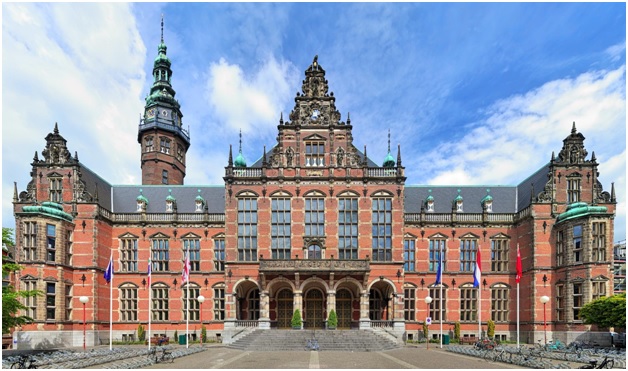Netherlands Educational System: Facts, Structure, and Ranking

The Netherlands is a relatively small but influential European country. It is famous for its educational system that concentrates on a child and a child’s needs. Many European countries try to copy its main principles and implement them in their realities. Netherlands education is free, except for private schools, though they are not popular because of the traditions (Dutch monarchs were educated in public or special schools).
Besides, the Netherlands population is getting old, so the government develops various programs for international students. Such students acquire education or participate in various projects that help to master the Dutch language, exchange experience comparing educational systems. Due to that, the government creates a favorable environment for international youth who want to stay in the Netherlands and make its post-study workforce. For example, 22% of college graduates stayed in the country and worked mostly in their healthcare system in 2012.
What criteria helped the Netherlands educational system become an exemplary one? An expert team of essay writers from WriteMyPaperHub.com (a paper writing service whom you can pay to get papers written from scratch) will gladly provide you with the following information.
Structure: from the Kindergarten to Job Market
All children begin attending schools at the age of 5 and start with a group 2. Group 1 is for kids whose parents decided to start their offspring’s education one year earlier. So, the foundation school accepts kids from 4 to 12. Afterward, children pass tests or exams to let parents decide what school to prefer after. There are four school types to choose from. When children finish their compulsory education, they start obtaining their Bachelor’s or Master’s Degrees in colleges and universities.
Children can go to neutral, religious, private, and public schools. Except for private schools, compulsory education and its financial support are the responsibility of the government and are controlled by the Dutch Ministry of Education, Culture and Science. Private schools depend on their budget. Religious, also called special, schools provide education depending on a certain religion like Muslim, Catholic, Jewish, and Protestant.
Preschool Education : 0-4
People in the Netherlands call this institution a toddler’s school. From 2.5 to 4 children learn basic educational, emotional, and intellectual skills. Except for playing, their main activities are language use, counting, physical activities, music, and performing simple duties and orders. There are also daycare centers. They fit parents who go back to work as soon as their statutory maternity leave expires and the kid is only 1-2 months old.
Foundation School: 4-12
Other countries call it an elementary school. School children attend it for 7-8 years depending on their parents (they may start at 4 or 5). Instead of forms, they have groups 1-8. The education becomes obligatory beginning with group 2 because group one is only on a free-will basis.
School children learn how to read, do simple Maths tasks, and write in group 3. Language as a subject can be studied from group 1, though most schools include it in the curriculum of groups 7 and 8. Before moving to secondary school, pupils pass an aptitude, final, or intelligence test (the choice depends on the school). Nevertheless, the results of testing are not as influential as the viewpoint of teachers and parents.
Preschool and basic institutions usually reflect a certain philosophy that helps parents understand the core goals of the selected school. The most popular educational approaches carry the names of their developers as Dalton, Montessori, Pestalozzi, etc.
High School: 12 – 16/18
When parents cannot make a decision about the next step in the child’s education, there is a trial year that helps them to select one of the three available variants:
- The pre-vocational school (VMBO) – 4 years to specialize in languages, Sciences, Mathematics, Arts, and History;
- The higher general continued education (HAVO) – 5 years of preparation for applied sciences universities with the last two profile years;
- Preparatory scientific education (VWO) – 6 years of preparation for research universities with the last two profile years.
To prevent psychological breakdown, all schools have bridge classes that allow learners to adapt to new curriculum and requirements smoothly. HAVO and VMBO schools usually interrelate and let their students attend the last two years in another school (HAVO students finish learning and pass exams in VMBO and vice versa). This is a brilliant opportunity to discover a student’s potential that was not noticed at the age of 12 (the so-called shift year).
Besides, the Netherlands has over 160 international schools for international students. It is a perfect combination of the three first educational levels for English-speaking students.
Vocational and Higher Education
Post-secondary education provides three opportunities:
- junior college (MBO) that lets students become engineers, nurses, accountants, business administrators, criminologists, architectors, and medicine employees with the chance to go on higher education in more advanced institutions;
- college (HBO) where students learn applied sciences and become specialists in the related areas (Bachelor’s and Engineer titles available);
- university (WO) that provides academic education with scientific degrees (different types of Bachelor’s, Master’s, and Ph.D. Degrees).
Vocational education deals with middle-level applied education. Students study there to get ready for the job market. They usually become technicians, assistants in trading, or get positions in the skilled craft.
Higher education involves the other two institutions that orient on Sciences and research (higher professional education and scientific education).
Final Thoughts
Dutch education appreciates one’s freedom and desires. That is why it provides a vast choice of educational institutions on various levels to fit the requirements of every citizen, including international representatives.


